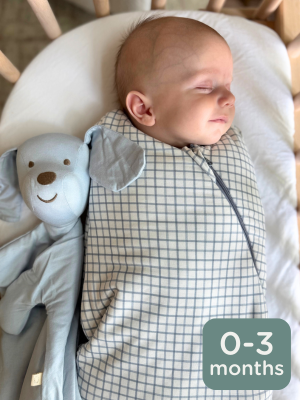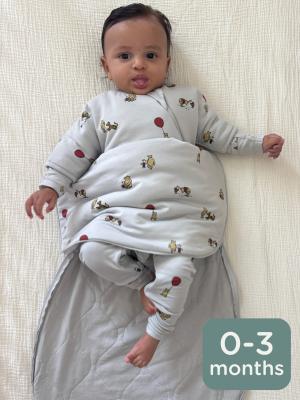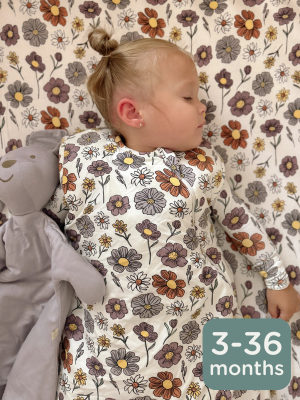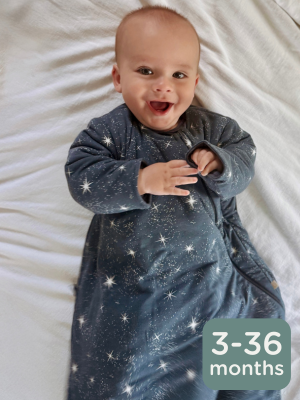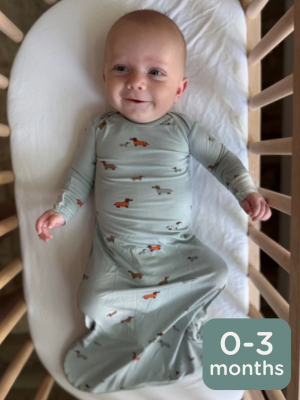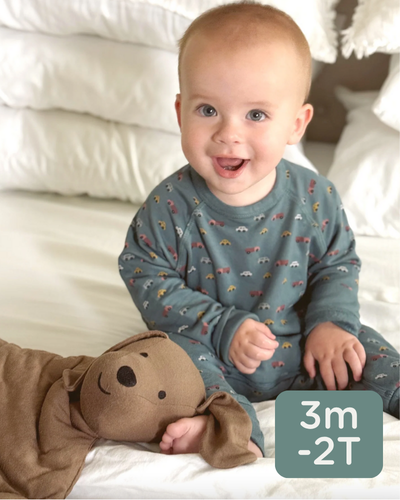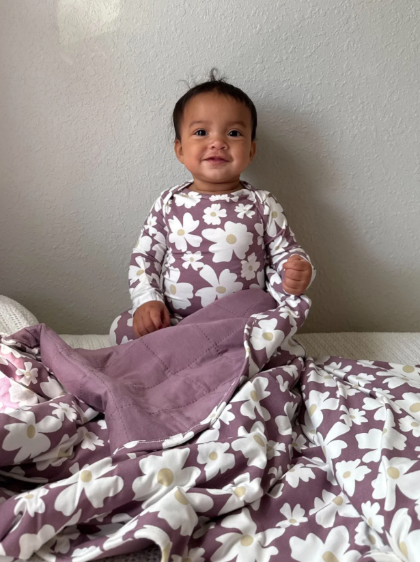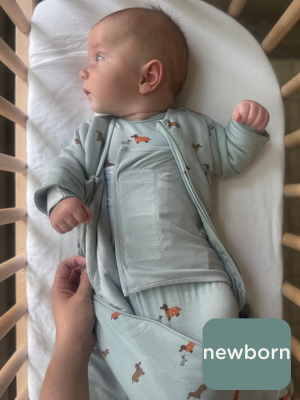“Is everything ok?” my husband, Drew, asked me a few nights ago. It was 2 a.m. and I had just shot out of bed suddenly needing to check on my daughters. I crept close to Laney’s bassinet and carefully rested my hand on her tiny chest to feel the reassuring rise and fall of her breathing. I then moved over to Darcy, our toddler, and readjusted her blankets before kissing her forehead. Confident that all was well, I returned to bed and confirmed with Drew that both of our girls were sound asleep.
If you’re a parent, you’re no stranger to sleep disturbances like this.
Recently, while watching the show Babies, on Netflix, (so good!) I learned why sleep changes so drastically for parents, mothers in particular. Of course, there’s the obvious reason: there’s a tiny human who now craves our constant care and attention, but there’s also a neurological explanation. Hormonal changes that occur during pregnancy and the surge of oxytocin at birth activates a primitive brain structure: the amygdala. (uh MIG dah lah)
According to a neurologist on the show, “the amygdala makes us vigilant. It makes us worry about the infant. And once the mother’s amygdala is open, it stays like this forever, no matter how old your child is.” This explains SO MUCH about my restless nights, my relationship with my daughters, and even my relationship with my parents.
I often wonder how my own parents survived parenthood. They have FIVE kids. How many times did they check on us in the middle of the night or lose sleep because they were consumed with anxiety about raising their children? When I was in my teen years and wanted to do something that my parents wouldn’t allow, my mom would say something like, “We just want you to be safe. You’ll understand when you have kids.” Truer words were never spoken!
Something inside of me drastically shifted the first time I heard my daughters’ butterfly-like heartbeats during an ultrasound. When their warm little bodies were placed on my chest after delivery, it was as if I discovered a part of my heart that I didn’t know existed, as if every experience in my life led me to that moment. Their happiness and safety is at the forefront of every decision I make.
Sleep hasn’t been the same since I became a parent; it isn’t supposed to be the same because mothers are designed to do everything in their power to protect their babies. There’s no quitting time and no breaks; we are on call 24/7 for our children, which includes randomly waking throughout the night to check on them. (Or, sending out text messages every time a storm is approaching. Thanks mom!)
Mothers’ brains are hardwired to feel the fierce, protective instincts that you can only understand once you become a parent. According to the article titled What Happens to a Woman’s Brain When She Becomes a Mother, by Adrienne LaFrance, the growth in the amygdala is “correlated with how a new mother behaves—while a cocktail of hormones, which find more receptors in a larger amygdala, help create a positive feedback loop to motivate mothering behaviors … an enhanced amygdala makes her hypersensitive to her baby’s needs.”
Hypersensitive is right! I can predict what my girls need before they need it and understand their mood at just a glance. La France goes on to state that “just by staring at her baby, the reward centers of a mother’s brain will light up … This maternal brain circuitry influences the syrupy way a mother speaks to her baby, how attentive she is, even the affection she feels for her baby.” The intuitive connection I feel with my daughters is truly remarkable, and it’s no accident.
These new influences in the brain aren’t just present in mothers. Recent research also states that “Men and adoptive parents show similar brain changes when they’re deeply involved in caregiving … In other words, the act of simply caring for one’s baby forges new neural pathways —undiscovered rooms in the parental brain.”
These “ undiscovered rooms” or the part of the brain that’s altered after becoming a parent, remains changed forever. So, the anxiety, the late night check-ins, and all the joyful and worrisome emotions of parenthood never go away. How could it? I know first hand how unshakable a mother’s love is. But I’ll take all the worry and interrupted sleep just to hear their contagious laughter, to feel the weight of them in my arms, and to see them peacefully dreaming, knowing they are safe and loved. And when they’re 30, with babies of their own, they’ll feel the deep appreciation that I now feel for my parents and the one million times they checked on me while I slept. Neurology can’t fully explain the complexity and depth of a parent’s love, but it’s a start!

